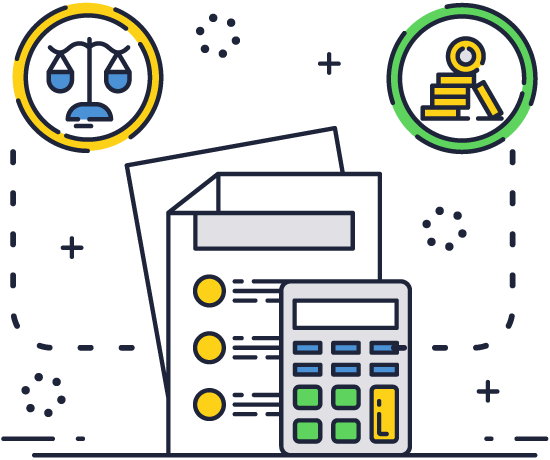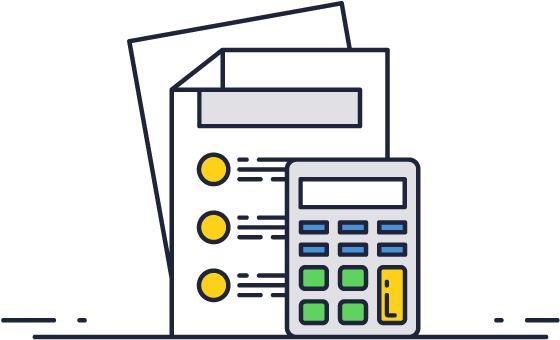Financial Education
Manage Your Credit
Your credit is the key to success.
Protect it.
How to get credit?
When you establish credit, you will have the ease of purchasing a product or service today and paying it in the future. To open credit and, more importantly, maintain a good credit history keep the following advice in mind:
- Keep an open checking or savings account
- To demonstrate stability avoid frequently changing your address or job
- Make your payments on time
- Keep accounts for basic services, such as the phone or electricity, in your name
To start building credit, consider applying for a store credit card or a secured credit card. This way you'll establish a small credit line and can begin building your credit.
Credit tools
Creating a budget helps you better organize your finances. This way you'll have better control of your income and expenses and will be able to plan reaching your financial goals.


Calculate your income
Starting with the amount of your paycheck for the month, add all the sources of income that you receive each month including rent, child or spousal support, pensions, or interest earned.
Calculate your expenses
Write down all the expenses you have in a month. For example, rent or mortgage payments, household expenses such as groceries, basic services, transportation, insurance and most importantly how much you save. This is a way to start, remember that each family is different and expenses can vary from home to home.
Reconcile
After gathering this information you will need to keep track of your real spending in order to compare to your budget. This way, you will be able to see the difference between what you think you spend and what you actually spend.
Types of Credit
Pay-as-you-go Accounts
Products and services are paid in one full payment, within a predetermined time frame, after the purchase of the product/service. These type of accounts do not typically generate interest fees. Examples include: Utilities such as electricity, water as well as medical services.
Installment
Products and services are paid at pre-set intervals and for pre-set amounts. Usually includes interest. This type of credit includes car loans and large appliances, as well loans from commercial banks, finance companies, for consumers, savings and loans companies, and credit unions. It is also possible to request a loan for a specific purpose and the consumer agrees to pay the debt in full within two or more payments at a specified date.
Revolving
You can buy several items within a short period of time using this type of credit as long as the total purchased amount does not exceed the assigned credit limit. Payments are made at regular intervals and the payments may be equal to or greater than t he suggested minimum payment. Interest is calculated on the remaining balance. Examples of this type of credit include: credit cards which may be issued by a bank or a store.
Credit Cards
What are the advantages and disadvantages of getting a credit card?
Advantages
- The convenience of buying what you need today and paying in the future.
- Budgeting is easier because your statement will detail all the account activity for the month.
- You can consolidate all your accounts into one payment.
- It is safer because you no longer have to carry cash.
Disadvantages
- You may end up paying more for your purchases when finance charges are included.
- Some credit cards have additional costs such as annual fees.
- You may overspend if you do not keep track of your spending habits.
- It is easier to make unplanned purchases.
Featured Services

Refer a friend and get up to $100 towards your next purchase!
Click To Learn More
Protect your credit history in case of an unplanned event.. with CCS.
Click To Learn More
Peace of mind. Setup AutoPay and never miss a due date again.
Click To Learn More